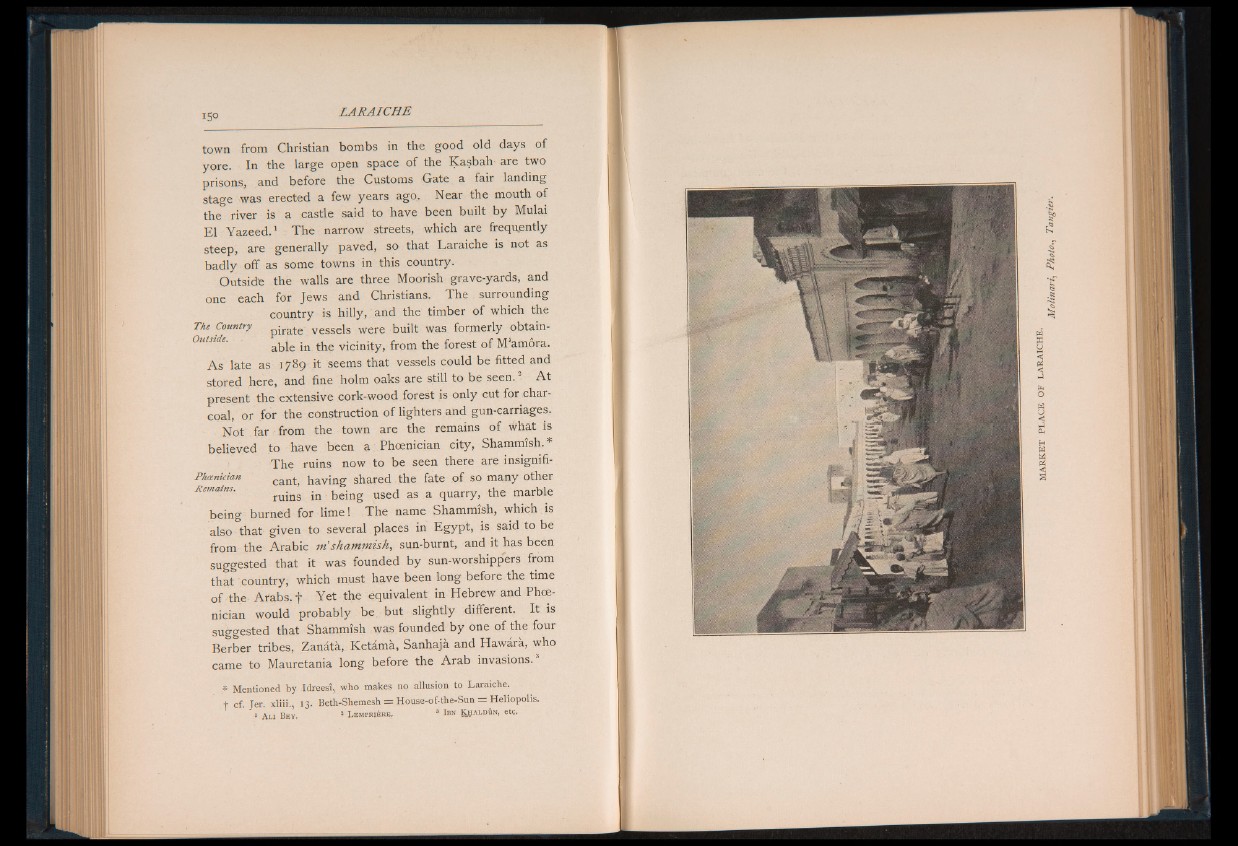
town from Christian bombs in the good old days of
yore. In the large open space of the Kasbah are two
prisons, and before the Customs Gate a fair landing
stage was erected a few years ago. Near the mouth of
the river is a castle said to have been built by Mulai
El Yazeed.1 The narrow streets, which are frequently
steep, are generally paved, so that Laraiche is not as
badly off as some towns in this country.
Outside the walls are three Moorish grave-yards, and
one each for Jews and Christians. The surrounding
country is hilly, and the timber of which the
The Country pirate vessels were built was formerly obtain-
Outside. able in the vicinity, from the forest of M’amora.
A s late as 1789 it seems that vessels could be fitted and
stored here, and fine holm oaks are still to be seen.2 A t
present the extensive cork-wood forest is only cut for charcoal,
or for the construction of lighters and gun-carriages.
Not far from the town are the remains of what is
believed to have been a Phoenician city, Shammish.*
The ruins now to be seen there are insignifi-
Phcenician cant) having shared the fate of so many other
Remains- ruins in being used as a quarry, the marble
being burned for limel The name Shammish, which is
also that given to several places in Egypt, is said to be
from the Arabic m shammish, sun-burnt, and it has been
suggested that it was founded by sun-worshippers from
that country; which must have been long before the time
of the Arabs, f Yet the equivalent in Hebrew and Phoenician
would probably be but slightly different. It is
suggested that Shammish was founded by one of the four
Berber tribes, Zanata, Ketama, Sanhaja and Hawara, who
came to Mauretania long before the Arab invasions.
* Mentioned by Idreesi, who makes no allusion to Laraiche.
+ cf. Jer. xliii., 13. Beth-Shemesh = House-of-the-Sun = Heliopolis.
I ^ L j B E Y , 3 X/EMPRIERE, 3 I BN KH A LD U N , etQ.